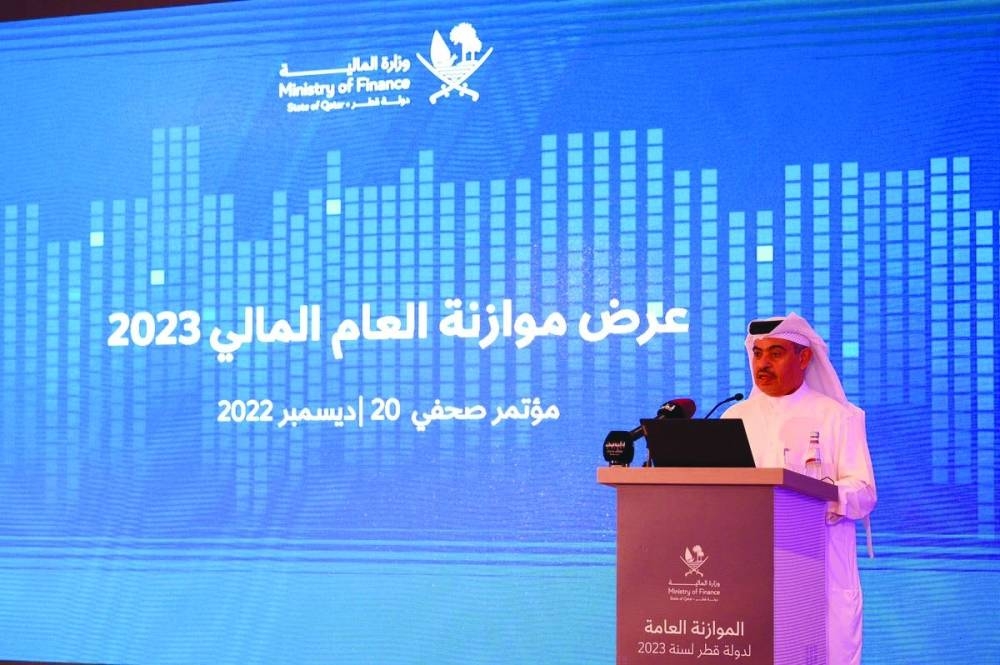Addressing editors of various Qatari media outlets in Doha Tuesday al-Kuwari said the national economy is expected to grow by 4.5% in 2023 as per International Monetary Fund (IMF) calculations.
At the event, al-Kuwari made a presentation on Qatar’s budget for the fiscal year 2023, which has set spending at QR199bn with total revenue of QR228bn, generating an estimated surplus of QR29bn.
Qatar’s oil revenue is expected to be QR186bn and non-oil revenue QR42bn in 2023.
Higher revenue projected for next year (QR228bn) has been mainly due to the adoption of an average oil price of $65 per barrel for fiscal 2023 in place of $55 per barrel in 2022.
“This increase is the result of a remarkable recovery in global energy prices during the current year, which international financial institutions estimate will continue to rise in the medium term. Total oil and gas revenues for the next year are estimated at QR186bn compared to QR154bn in 2022, which represents an increase of 20.8%,” al-Kuwari noted. The conservative figure of $65 per barrel on which the 2023 budget has been based is part of the strategy of the Ministry of Finance to allocate financial resources towards existing commitments expected during the year to fund National Development Strategy (NDS) programmes and projects.
Non-oil revenues for 2023 remain stable at QR42bn, compared to the 2022 budget, he said. The Ministry of Finance is currently co-ordinating with relevant authorities to follow up on the implementation of some measures that would increase non-oil revenues during 2023.
Some of these measures, al-Kuwari noted, will include expanding the list of goods covered by excise tax and reviewing some government fees.
“Estimates of revenues resulting from the possible implementation of these measures (during 2023) were not added to the budget based in line with the Ministry of Finance’s conservative approach to public revenue estimates,” the finance minister said.
Al-Kuwari noted that Qatar continues to focus on the health and education sectors, with QR21.1bn allocated to the health sector, about 11% of the total expenditures, and QR18.1bn for the education sector, nearly 9% of the total expenditures.
On the other hand, he said spending on the culture and sports sector is estimated at QR9.3bn, compared to QR16.6bn in the 2022 budget, or 5% of the total budget. The decline in spending on the culture and sports sector is attributed to finalising all projects tied to the hosting of the FIFA World Cup Qatar 2022 and related expenses.
Qatar to implement VAT only after ‘comprehensive’ study
Qatar will implement value added tax (VAT) only after a comprehensive study, HE the Minister of Finance Ali bin Ahmed al-Kuwari said Tuesday.“We have not set any timeframe for VAT implementation,” he said in reply to a question at a media event Tuesday.
The VAT framework treaty adopted by the GCC has called for each member state to impose a 5% VAT on designated goods and services.
“We will look at tax regime from all facets seriously to see its impact on the citizens and society,” al-Kuwari said.


